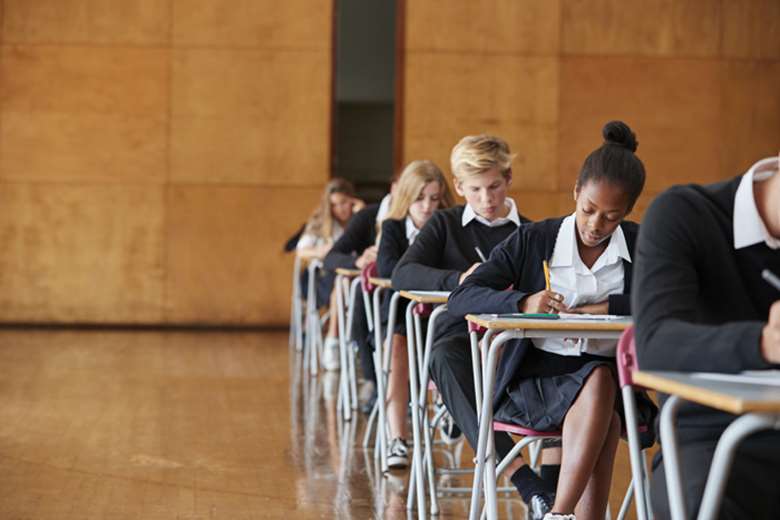Attainment gaps widens for first time in 12 years
Fiona Simpson
Wednesday, August 26, 2020
The attainment gap between disadvantaged pupils and their peers has stopped narrowing and begun to grow for the first time in nearly 12 years, latest figures show.

The Education Policy Institute's (EPI) annual report on the state of education finds that disadvantaged pupils in England are 18.1 months of learning behind their wealthier peers by the time they finish their GCSEs – the same gap as five years ago.
The gap at primary school is now 9.3 months, having increased for the first time since 2007 up from 9.2 months in 2018 to 9.3 a year later, the analysis of government figures for 2019 shows.
-
Related news: Government laptop scheme - Only a third of eligible children benefit from free technology
-
Related news: Disadvantaged pupils worst hit by A-level downgrades, figures show
Researchers put the widening of the gap due to rising levels of persistent poverty even before the Covid-19 pandemic.
The report states that the proportion of pupils with a high persistence of poverty (those on free school meals for over 80 per cent of their time at school) is on the rise. Since 2017, the proportion of pupils in this group has risen from 34.8 per cent to 36.7 per cent.
Researchers have raised concerns over further growth due to the Covid-19 pandemic.
Sam Butters and Gina Cicerone, co-chief executives of the Fair Education Alliance and partners on the report, said: “Before Covid-19, persistently disadvantaged children were already 22 months behind their more advantaged peers, and it is widely expected this will increase as a result of school closures.”
In early years, work to narrow the gap has “stagnated” at 4.6 months the report states, the same as in 2013.
The latest research highlights growing inequalities between ethnic groups with Black Caribbean pupils now 10.9 months behind their white counterparts by the time they sit their GCSEs compared with 6.5 months behind in 2011.
Gypsy/Roma pupils are almost three years (34 months) behind white British pupils at GCSE level, it adds, while Chinese pupils are nearly two years (23.9 months) ahead.
It also highlights a slowing in the gap between looked-after children and non-looked-after children.
Looked-after children are nearly two and a half years (29.0 months) behind their peers by the time they finish their GCSEs, the report states, adding that this figure has reduced by just one month over the last six years.
Children in need are 20 months behind their peers, it states, while children in need with a child protection plan are over two years (26 months) behind their peers.
“It is notable that around a quarter of children with a child protection plan do not receive either the pupil premium or looked-after premium from the government. The large gaps among these groups support recent EPI proposals to extend the looked-after premium to children with child protection plans,” the report states.
Researchers have also highlighted a lack of progress in closing the gap for children with special education needs and disabilities (SEND).
Pupils with SEND who have an education, health and care (EHC) plan are well over three years (41.1 months) behind their peers by the end of secondary school, while those with SEND without an EHCP are 24.4 months behind their peers.
David Laws, executive chairman of the EPI, said: “This report highlights that in spite of the government’s aspiration to “level-up” opportunity, the education gap between poor children and the rest is no longer closing, for the first time in around a decade.
“Before the Covid crisis, disadvantaged children were around 1.5 years of learning behind other pupils, and this figure seems almost certain to have increased since the closure of schools.
“It is deeply concerning that our country entered the pandemic with such a lack of progress in this key area of social policy, and the government urgently needs to put in place new policy measures to help poor children to start to close the gap again.”
Gail Tolley, chair of the Association of Directors of Children’s Services’ educational achievement policy committee echoed calls for support to help disadvantaged children catch-up as schools begin to reopen next week.
She said: “Sustained support to help all pupils, particularly the most disadvantaged, catch up on months of lost learning and socialisation will be important when they return to school, as will long term sustainable funding for schools and for local authorities to enable us meet the immediate and long term needs of children and young people.”
Kevin Courtney, joint general secretary of the National Education Union, added: "Over the course of the pandemic school staff worked hard to reach out to families they knew were being hit the hardest, but schools alone cannot solve the issue of poverty.
“Immediate, systemic action is needed to ensure that no child is left behind. But the government has been falling badly short, with the botched rolling out of free laptops and other equipment to those who need them, and a distribution system for free school meals in lockdown so bungled that it fell to schools and local authorities to plug the gap.”




